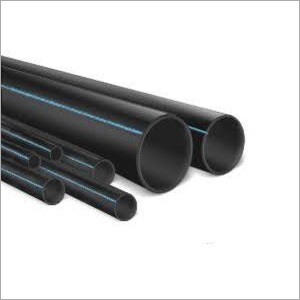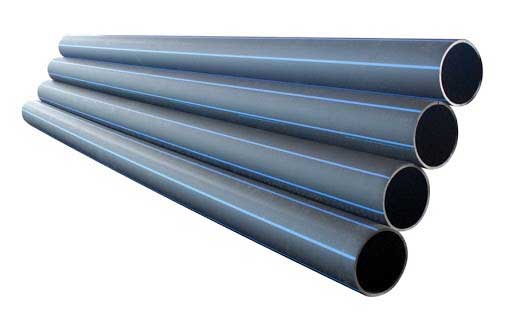hdpe pipe suppliers Midland TX: Checklist for Contractors
Wiki Article
Recognizing the Trick Perks of HDPE Pipeline for Water and Wastewater Monitoring
Using HDPE pipeline in water and wastewater monitoring offers countless benefits that warrant factor to consider. Its remarkable sturdiness and long life expectancy make it a favored choice for many projects. In addition, the product's resistance to deterioration and chemical damages improves its dependability in various environments. The advantages prolong beyond simply long life and resistance. Pipe Manufacturing Midland TX. Exploring its cost-effectiveness and ecological influence exposes a lot more compelling reasons for its extensive adoption in modern-day facilitiesOutstanding Sturdiness and Longevity

HDPE pipeline stands apart for its exceptional toughness and longevity, making it a recommended choice in water administration systems. Constructed from high-density polyethylene, these pipes can hold up against significant stress and stress, making certain reputable efficiency in time. Their durable nature permits them to withstand severe environmental conditions, consisting of temperature changes and dirt movements, which can trigger various other materials to stop working.
The lifespan of HDPE pipelines frequently goes beyond 50 years, supplying an economical solution for communities and industries alike. Furthermore, the product's lightweight residential or commercial properties streamline installment, decreasing labor expenses and durations. This sturdiness lessens the demand for frequent repair work or replacements, further improving its financial allure.
In water management applications, the reliability of HDPE pipes implies less disturbances and improved service connection, making them indispensable to lasting framework development. The combination of sturdiness and durability strengthens HDPE's role as a keystone in effective water management services.

Resistance to Rust and Chemical Damage
While several products catch corrosion and chemical damage in time, HDPE pipes display exceptional resistance, making them excellent for numerous water management applications. This durability comes from the molecular structure of high-density polyethylene, which is inherently non-reactive and does not corrode like metals or degrade from exposure to extreme chemicals. As an outcome, HDPE is very reliable in settings with hostile materials, such as wastewater systems that might consist of acids, bases, and organic solvents.
Furthermore, HDPE pipes can withstand environmental factors such as dirt level of acidity and saline conditions, even more improving their viability for diverse applications (American Plastics HDPE Pipe Manufacturing). Their capacity to preserve architectural honesty with time decreases the risk of leakages and failures, which is essential in making certain the security and reliability of water distribution and wastewater monitoring systems. Subsequently, the resistance to rust and chemical damage significantly adds to the total efficiency and durability of HDPE piping solutions
Cost-Effectiveness and Financial Benefits
When considering the monetary implications of water administration systems, the cost-effectiveness of HDPE pipelines becomes evident. These pipes supply lower installment and maintenance prices compared to standard products like metal or concrete. Their lightweight nature streamlines transport and setup, causing reduced labor costs. In addition, HDPE pipes display a lengthy lifespan, often surpassing half a century, which translates to less substitutes and long-term cost savings.In addition, the resistance of HDPE to corrosion and chemical damage lessens the demand for costly repair work and substitutes. The pipes likewise sustain reliable water flow, decreasing power prices connected with pumping systems. By reducing leaks and water loss, HDPE pipelines add to significant economic benefits for communities and markets alike. On the whole, the initial investment in HDPE piping can yield substantial financial returns over the lifespan of the water management system, making it a prudent choice for sustainable infrastructure development.
Environmental Sustainability and Decreased Impact

Versatility and Adaptability in Installment
As a result of their distinct properties, HDPE pipelines use exceptional convenience and versatility in setup, making them suitable for a variety of applications. Their light-weight nature permits easier handling and transport, decreasing labor costs and installment time. HDPE pipes can be curved and formed to fit different surfaces and job requirements, which is specifically helpful in challenging atmospheres.In addition, their resistance to rust and chemical damage permits installment in diverse setups without the need for specialized safety finishes. The ability to fuse joints produces a continuous, leak-free system, boosting the general honesty and dependability of the installment. HDPE's versatility additionally fits ground activity, decreasing the risk of damage in locations prone to moving dirt. Generally, these characteristics make HDPE pipes not just versatile yet also a favored selection for water and wastewater management systems.
Regularly Asked Concerns
How Does HDPE Pipe Contrast to PVC in Water Monitoring Applications?
HDPE pipe uses superior versatility, resistance to deterioration, and resilience contrasted to PVC. Its lighter weight facilitates simpler installment, while its lengthy lifespan decreases substitute prices, making HDPE a preferred option in water administration applications.What Is the Life-span of HDPE Pipes Under Common Conditions?
Under normal problems, HDPE pipes can have a lifespan ranging from 50 to 100 years. Their sturdiness and resistance to deterioration add to their long-term performance in various applications, making them a trustworthy selection for infrastructure.Are HDPE Pipes Recyclable After Their Service Life?
Yes, HDPE pipes are recyclable after their service life. Midland TX HDPE Pipe Fittings in Stock. They can be refined and repurposed into brand-new items, substantially decreasing environmental impact and promoting sustainability within the industry, making them an environment-friendly option for piping optionsWhat Is the Setup Process for HDPE Pipeline?
The installation process for HDPE pipelines includes site preparation, trenching, pipeline blend or mechanical signing up with, backfilling, and pressure testing. Correct strategies ensure a long lasting and effective system for transferring water and wastewater effectively.Can HDPE Pipes Be Made Use Of for Both Drinkable and Non-Potable Water Systems?
Yes, HDPE pipelines can be utilized for both potable and non-potable water supply. Their adaptability, Pipe Supplier American Plastics Midland sturdiness, and resistance to corrosion make them ideal for different applications, guaranteeing secure and effective transport of water in various contexts.Report this wiki page